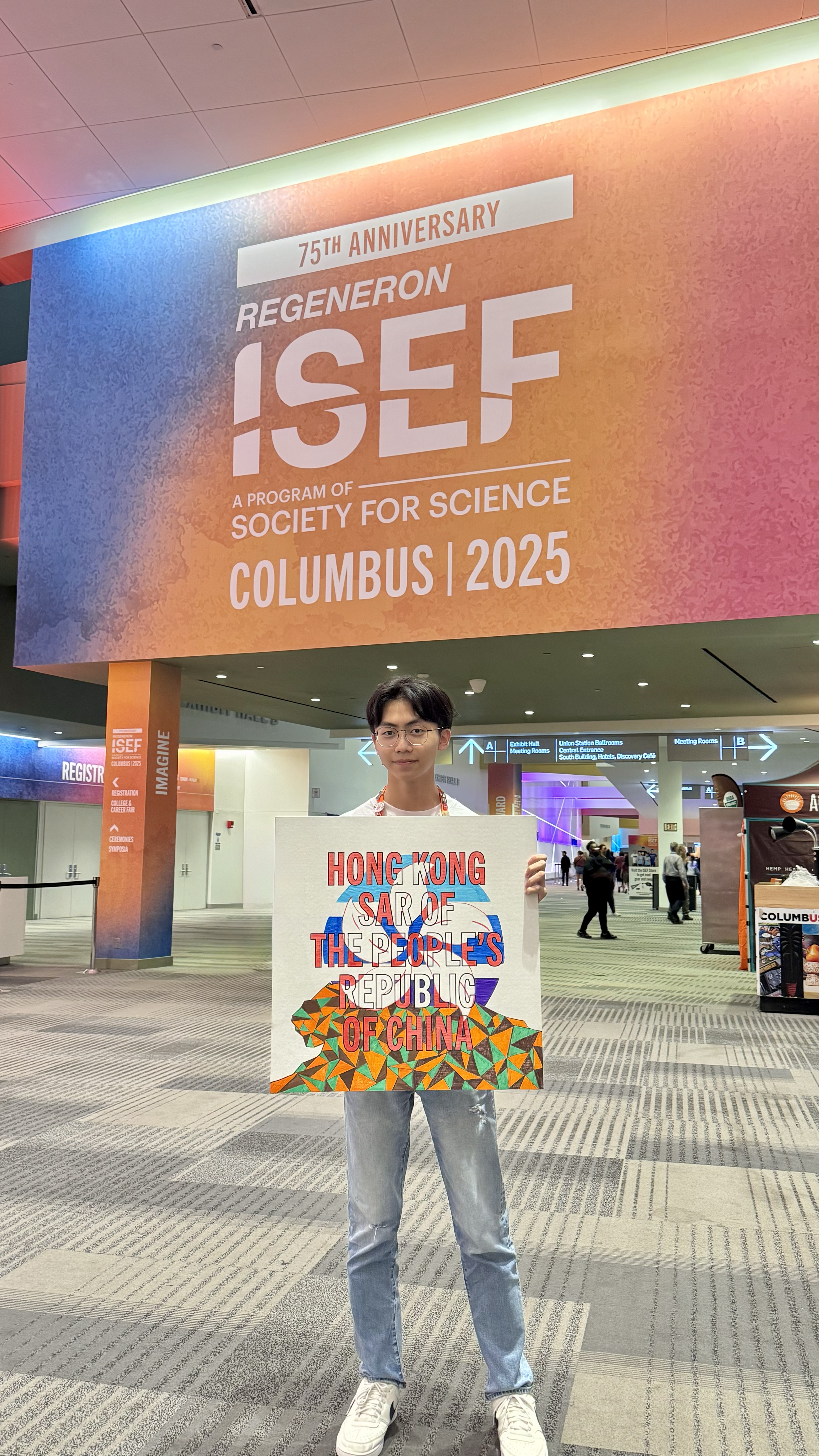Woody Tai
Date: 25 JUN 2025
Woody Tai
Date: 25 JUN 2025

ISEF. The place where every science kid has
ISEF — the International Science and Engineering Fair, is the world's largest pre-college science and engineering competition held in the United States yearly every May. I was part of the 2025 cohort and managed to grab the the Second Place Award in Energy: Sustainable Materials and Design for my project Dual Functional Catalyst for Green Hydrogen Production (ps read more here)
I think the better question is what are your goals? ISEF is not just a great competition to showcase your scientific skills, but also a gathering place for like-minded student like yourself. As Maya Ajmera said in her keynote at ISEF,
"You have met YOUR people."
Being an ISEF finalist means you were competed through so many rounds of competitions before finally being selected to represent your home state or your region's delegation as a qualified finalist. So before you read any further, please stop and give yourself a pat on the back for all of your work and dedication in science. Being an ISEF finalist also means you are a top voice in your field, and having the knowledge and understanding to present your work to Top scientist who have PhDs and are in this industry.
With over 75 countries and regions participating in Regeneron ISEF, and over 1800 students, ISEF is a place where I met so many individuals who share the very same vision as me, a world where science and humanity intersect. A world where science builds the foundation of good governance.
Tip:
Read the ISEF judging guide [Here]
For the first 2 or so days, you will focus a lot more on setting up your own booth, there would be ample time for you to rehearse on site! This is the first time you get to practice your entire presentation in the ISEF halls.
On the day of the judging, it's completely fine to feel nervous or worried, but the key is to stay calm. A lot of guides and mentor will tell you to memoise your script, but what I advise is for you to stay flexible, judges have already read a bit of your project the night before, so they might already have questions for you! Staying flexible and being confident with your project is key to staying calm. The judges might ask you questions that seem basic or too scientific, but the goal of these questions are to test your scientific mind and your logical reasoning in interpreting the results and more.
It is important to understand the 3 types of awards, Top Awards, Grand Awards and Special Awards.
Grand Awards are awarded to the finalist by PROPORTION, this year for example, some relatively smaller categories like Computational Biology had less number of awards compared to larger categories like Chemistry. So when choosing your category, I highly recommend choosing the one where you are most likely to find a judge who specializes in your project. As for the types of awards, there are 4 ranks (1st, 2nd, 3rd and 4th) so there will be ample room for deliberation and competition!
You might have noticed I skipped over the Top Awards, Top Awards are only merited by the First Place Awardees of each category, these awards are the 'Biggest Award' you can get at ISEF, they are used to carefully pick out the best of the best of that year's cohort of students for the highest level of recognition.
And finally we have special awards, personally I have a love hate relationship with these awards as they are usually very niche, meaning either you have the exact type of project they are looking for or you are out of luck. Meaning if your project happens to stumble onto a special award judge and they love it. That would be your 1st award!